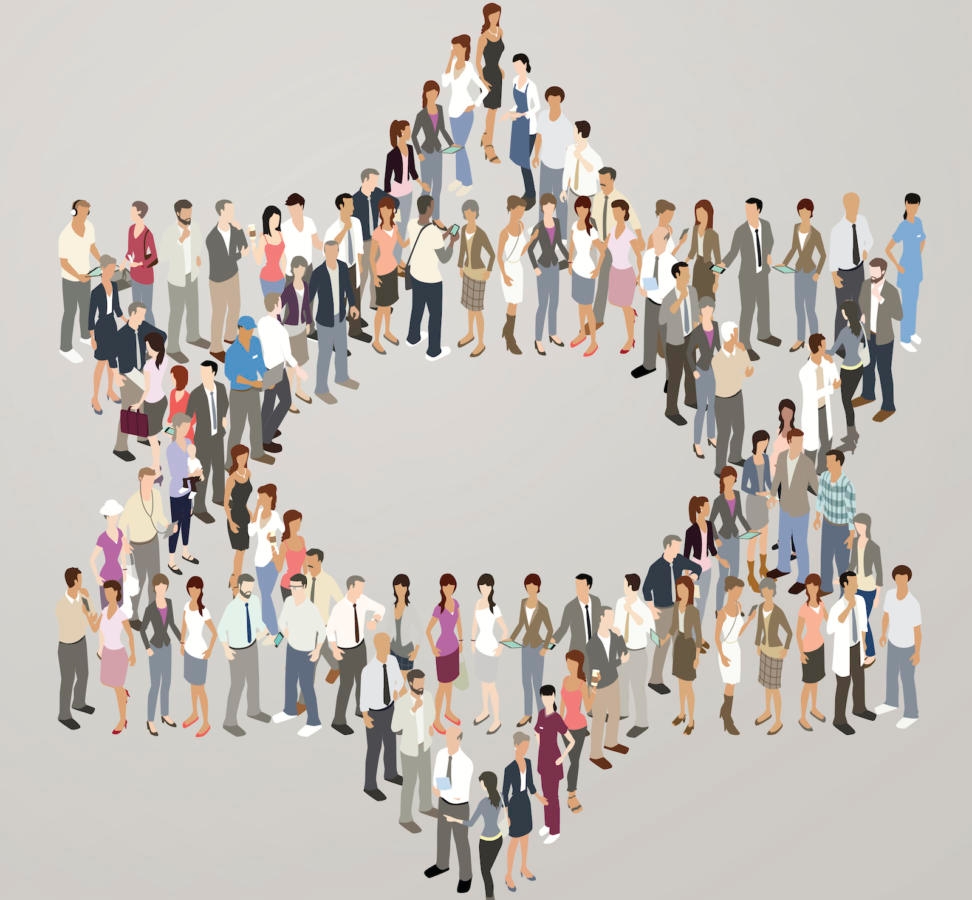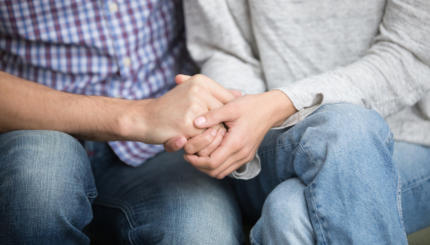The first time I wailed in Jerusalem, I wasn’t at the Western Wall.
I was in a park across the street from my yeshiva on the first day of classes feeling totally out of place. In class, teachers peppered their lectures with biblical terms and Hebrew slang I had never heard before. My peers eagerly contributed to discussions, revealing a foundational knowledge of Torah and Jewish law I didn’t possess.
While I sat in the park, familiar thoughts creeped back into my mind.
“You will always be the one who knows the least in Jewish spaces.”
“You’re less Jewish than they are because you didn’t go to Hebrew school or camp.”
“You can’t convert into a people. You’ll never really be Jewish.”

Help us keep Jewish knowledge accessible to millions of people around the world.
Your donation to My Jewish Learning fuels endless journeys of Jewish discovery. With your help, My Jewish Learning can continue to provide nonstop opportunities for learning, connection and growth.
Those insecurities began during the conversion process. I was a college freshman in Chicago and had wanted to convert since I was 12. But still I worried I would never fit in as a Jew.
I began attending services and dinners at the Conservative synagogue in my neighborhood to get my fill of observant Jewish life. At 18, I was only the youngest in the room by a few years, but everyone else seemed light-years ahead of me. They were working toward doctorates, getting engaged, or buying condos while I was learning how to cook rice and mixing up laundry detergent and dish soap.
Even after I completed my conversion, those feelings lingered. Peers at Hillel made comments about how they’d never see me as Jewish or how my conversion was illegitimate. On the last night of my Birthright Israel trip, I listened as dozens of people talked about feeling closer to their heritage or how they felt walking the streets of Jerusalem knowing their ancestors had yearned for centuries to return to this city. I thought about how my ancestors had spent that time kneeling in pews in Ireland and how I was the only person in my family with the slightest desire to travel to Israel.
A few months later, I was at a Jewish student leadership conference. The presenter was affirming the organization’s commitment to pluralistic Jewish life, assuring the crowd of college students that whether they had one Jewish parent or two, they were welcomed members of the community.
I felt utterly defeated. I had spent years yearning to be part of the Jewish people, and at every turn I was reminded that I wasn’t born into my tribe.
A few weeks into the semester, the yeshiva organized a Shabbat gathering for students and teachers. After a grueling hike, 60 of us overtook a hostel in northern Israel and welcomed Shabbat with traditional services and dinner. Afterwards, a few students organized a complete with whiskey, a singing circle, and song-sheets featuring Leonard Cohen and Debbie Friedman.
We stuck to the lyrics in front of us at first, until my classmates began taking turns standing up and bringing pieces of themselves to our gathering. Some led us through Yiddish songs while others shared their favorite teachings from Hasidic rabbis and Jewish feminists. We made toasts and jokes for hours.
The circle we sat in grew smaller as the night went on. After a few hours, there were only a few of us left. Someone stood up and taught us an old nigun. As the rest of us joined in, I closed my eyes and thought about how many people before me must have sung this nigun on a Friday night. Hundreds? Thousands?
I opened my eyes and looked around at my classmates, who were still singing and humming along. The week before, one had graciously invited me for Shabbat dinner at the last minute when they found out I had nowhere to go. Another had comforted me on a particularly rough day. With others, I had discovered new ways of reading ancient Jewish texts.
“These are my people,” I thought to myself.
For the first time, I was in a community of peers who took ritual observance and Torah study seriously, while also always being down to grab a beer or be a friend in times of need.
I still get embarrassed when I am called to the Torah and “bat Avraham v’Sarah” trails my Hebrew name, as is the custom for converts to Judaism. There are days I still feel lost in class.
But being part of a community my peers and I have built together has convinced me I was part of this tribe all along. I just needed time to find my people.
Are you considering conversion to Judaism? Sign up here for a special email series that will guide you through everything you need to know.



